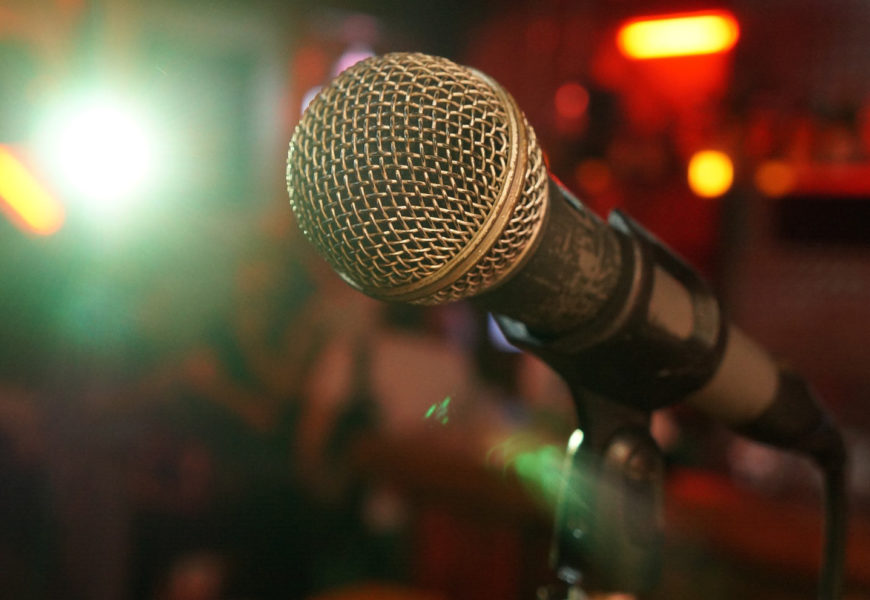PG-13 and R ratings weren’t really strict rules, but more so loose suggestions in my household. I grew up watching the things my parents or babysitters watched, which, for better or worse, exposed me to new ideas and new ways of seeing the world. I eschewed the more age-appropriate movies or TV shows like Harry Potter, or literally anything on the Disney channel, and instead I watched sketch comedies, stand-up routines, and satires obsessively. Although I was occasionally given “earmuffs” (a child’s worst enemy) to protect from crass language, the comedians who narrated my childhood were Will Ferrell, Chris Rock, Sarah Silverman, Jerry Seinfeld, and, of course, Dave Chappelle.
Chappelle’s Show on Comedy Central was a mixture of absurd slapstick humor and razorsharp political satire, primarily focusing on race in America. Chappelle left the show abruptly in the middle of its third season, citing discomfort with some white viewers’ responses to his satire rooted in racial stereotypes. Walking away from the show (and the accompanying $50 million contract) secured Chappelle a reputation for being a socially conscious comic willing to put principle over money.
After about a decade in the shadows, Chappelle’s name began to surface in news stories about his return to comedy. In 2014, when I first heard Dave Chappelle was back and doing a 10-day residency at Radio City Music Hall in New York, I was elated. As far as I was concerned, my hero had returned. Since he had such a long hiatus, he must be ready to pump out new material, I thought.
I immediately began rewatching all the Chappelle’s Show clips I could find and, to my surprise, they didn’t quite hold up as I had remembered. Of course, there were the iconic sketches that still held their own; Charlie Murphy’s retelling of the time he spent with Rick James and met Prince (both played by Chappelle); or the parody of the ABC show Wife Swap called “Trading Spouses.” Although the show still had wit and political relevance some 10 years later, I realized how much our society had changed for the better and all I could find myself thinking was: “There’s no way this show could be made today.”
In 2017 Chappelle released four Netflix specials, netting approximately $20 million per performance. The first two, Deep in the Heart of Texas and The Age of Spin, were Chappelle’s first specials released in twelve years, and became instantly successful. Eight months later, in December, Netflix released the second two part stand-up special called Equanimity and The Bird Revelation. A month after the first release, Netflix announced that they were the streaming service’s most viewed comedy specials in its history.
But the specials weren’t greeted exclusively with praise, like most of Chappelle’s early work. In fact, Chappelle was widely criticised for his comments about Caitlyn Jenner and the trans community, OJ Simpson, and Chappelle’s childhood comedy idol, Bill Cosby.
In The Bird Revelation, Chappelle shares his thoughts on the #MeToo movement, and focuses on the accusations against Louis C.K., Kevin Spacey, and Harvey Weinstein. Generally, while discussing the sexual misconduct of famous men, Chappelle denounces their actions, only to minimize or mitigate them soon afterwards. His schtick of digging himself into a hole just to prove he can escape worked for him in the past, but doesn’t quite work today.
Chappelle reminds the audience at the beginning of The Bird Revelation that sometimes the funniest thing to say is mean. But that philosophy really only works a fraction of the time. While ruminating on the troves of sexual assault victims who have come out to make statements against their attackers, Chappelle suggests that some may just be experiencing “buyers’ remorse,” which is a particularly cruel choice of words, and surely not the funniest thing he could have thought of. It’s the type of humor that would have been perfectly acceptable in the peak of Chappelle’s career twelve years ago but no longer sits right in the modern audience’s stomach. Tastes can change a lot over time, and large portions of Chappelle’s new material seem more fit for a bygone era than for today.
Chappelle’s political and social awareness has always been rooted in his experience of race, rather than gender, so it’s hard to expect him to fully understand the nuance and implicit meanings of the jokes he makes about the #MeToo movement. That being said, he does call himself a feminist and offers up moments of sober political analysis, with a focus on tackling structural issues and inequities. At one point, he calls for the sexual equivalent of South Africa’s Truth and Reconciliation Commission (“the system itself must be tried”) to deal with the pervasive sexual harassment and assault problem in the US.
The new Dave Chappelle specials are culturally significant; they offer historical context and modern social criticisms that are all-too-needed in 2017. The modern Dave Chappelle smokes his juul on stage, doling out pieces of wisdom, and has some genuinely hilarious bits, but the most depressing part is that you have to sit through some pretty outdated and tasteless humor just to find the gems.











This article sucks. Maybe you should find a sense of humour. Why so butt hurt….sorry is that too offensive to say in 2018?
Is this article satire? Or is this really an opinion from a mature adult?
I thought both segments were funny af. Glad he used his voice for what a normal non famous person would be criticized for saying.
Puritanism. Is this what you want?